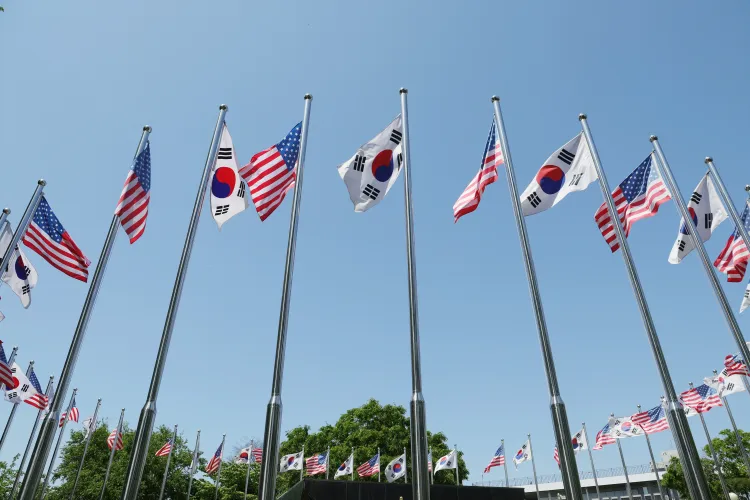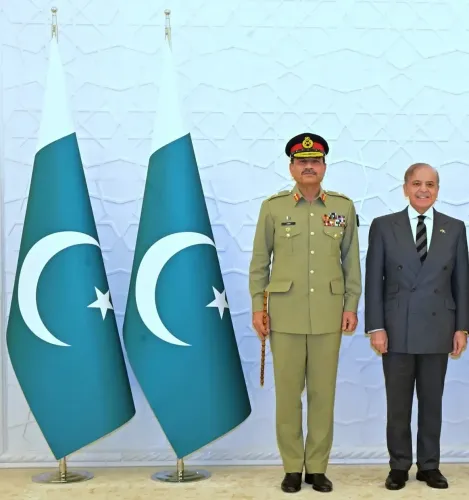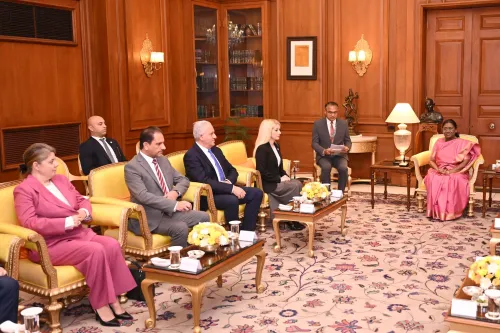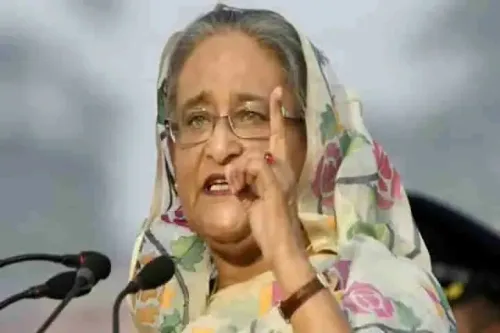Did US Officials Consider Demanding Korea to Raise Defense Spending to 3.8% of GDP during Tariff Talks?

Synopsis
Key Takeaways
- US Officials considered raising South Korea's defense spending to 3.8% of GDP.
- Discussions included operational flexibility for US Forces Korea.
- Current South Korean defense spending is 2.32% of GDP.
- Pressure mounts for Korea to meet global standards of defense spending.
- Strategic flexibility is a debated topic in the US-Korea alliance.
Washington, Aug 10 (NationPress) Officials from the administration of US President Donald Trump contemplated requiring South Korea to increase its defense expenditure to 3.8 percent of its gross domestic product (GDP) amid tariff discussions, according to a news report referencing internal US government documents.
US representatives also considered the possibility of South Korea publicly backing the operational flexibility of the US Forces Korea (USFK) to more effectively counter China, as reported by The Washington Post. However, it remains unclear whether these proposals were actually addressed in the concluded negotiations with South Korea last month.
The documents suggested that the Trump administration may aim to leverage tariffs to accomplish a variety of national security objectives beyond simply reducing America's trade deficits and enhancing domestic production, the newspaper highlighted.
"The US also aimed for Seoul to elevate defense spending to 3.8 percent of GDP from 2.6 percent last year, and to augment its contribution of over $1 billion to cover the annual expenses of maintaining approximately 28,500 US troops in South Korea," the report stated.
It also referenced an early draft of a "US-Korea agreement," which proposed that "The South Korean government should be encouraged to support a change in the deployment of US troops stationed under the command of United States Forces Korea."
Additionally, the document called for a commitment that "Korea will issue a political statement endorsing flexibility for the USFK force posture to enhance deterrence against China while continuing to counter North Korea."
Pressure has been mounting on Korea to increase its defense budget, as the Pentagon has indicated that Korea and other Asian allies should adhere to the "global standard" of spending 5 percent of their GDP. This comes amid expectations that Trump may demand a significant increase in Seoul's financial commitment to host USFK, as reported by Yonhap News Agency.
This year, South Korea's defense budget is about 61.2 trillion won (approximately $44.2 billion), which constitutes 2.32 percent of its GDP, according to the defense ministry in Seoul.
Furthermore, speculation continues that the Trump administration might pursue more strategic flexibility for American forces in South Korea, as the Pentagon seeks greater "burden-sharing" from its allies while prioritizing deterrence against an increasingly assertive China.
Strategic flexibility is a contentious topic that has resurfaced as Seoul and Washington consider the "modernization" of their alliance. This concept entails utilizing US troops stationed in South Korea for a broader array of expeditionary operations, including scenarios related to China, moving away from their traditional focus on deterring North Korean threats.
The matters surrounding Korea's defense spending and the operational scope of USFK could feature prominently in the upcoming summit between South Korean President Lee Jae Myung and Trump, expected to take place later this month, as both nations are in the process of finalizing the summit agenda and related details.









